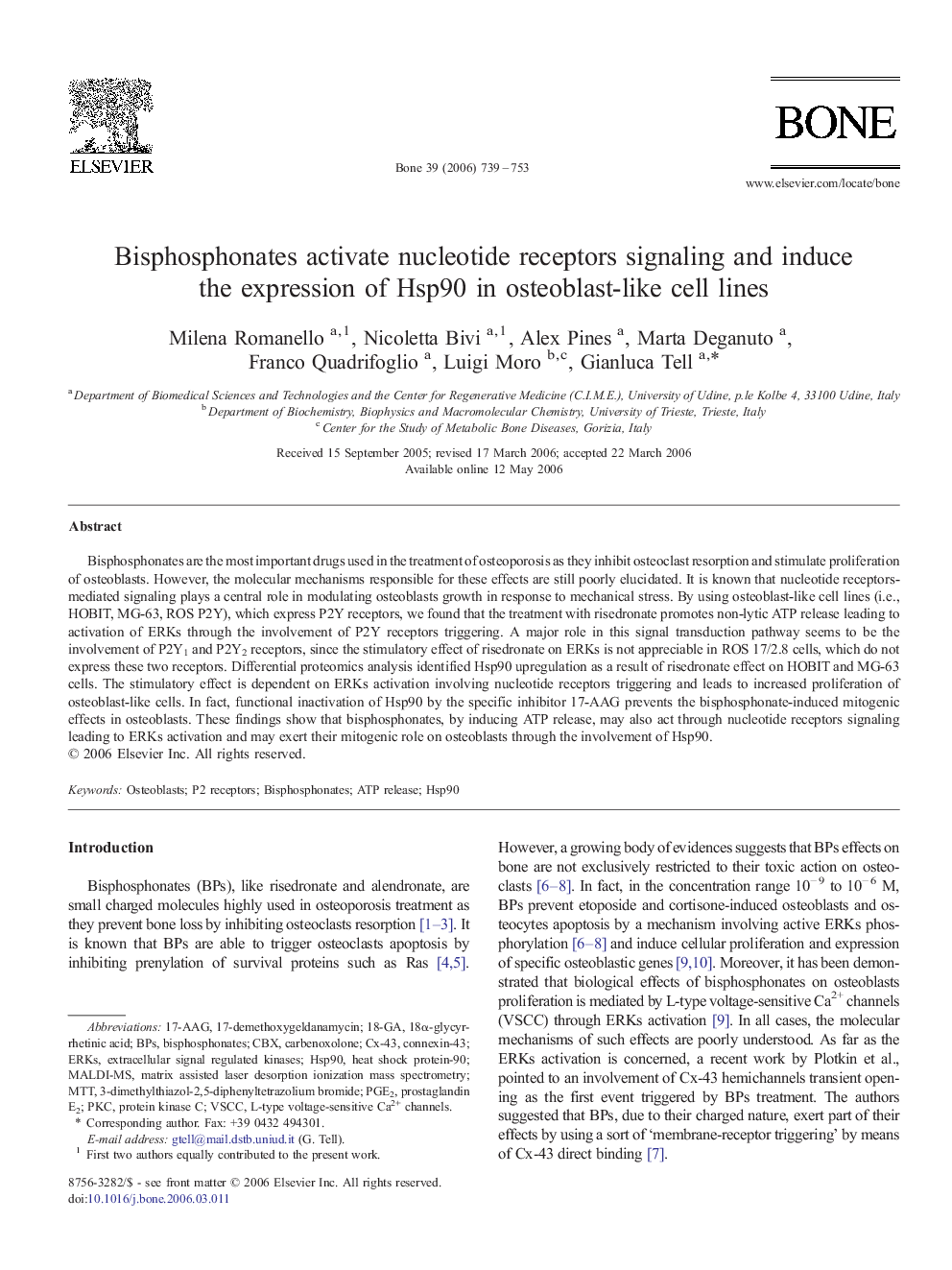| کد مقاله | کد نشریه | سال انتشار | مقاله انگلیسی | نسخه تمام متن |
|---|---|---|---|---|
| 2783092 | 1153377 | 2006 | 15 صفحه PDF | دانلود رایگان |

Bisphosphonates are the most important drugs used in the treatment of osteoporosis as they inhibit osteoclast resorption and stimulate proliferation of osteoblasts. However, the molecular mechanisms responsible for these effects are still poorly elucidated. It is known that nucleotide receptors-mediated signaling plays a central role in modulating osteoblasts growth in response to mechanical stress. By using osteoblast-like cell lines (i.e., HOBIT, MG-63, ROS P2Y), which express P2Y receptors, we found that the treatment with risedronate promotes non-lytic ATP release leading to activation of ERKs through the involvement of P2Y receptors triggering. A major role in this signal transduction pathway seems to be the involvement of P2Y1 and P2Y2 receptors, since the stimulatory effect of risedronate on ERKs is not appreciable in ROS 17/2.8 cells, which do not express these two receptors. Differential proteomics analysis identified Hsp90 upregulation as a result of risedronate effect on HOBIT and MG-63 cells. The stimulatory effect is dependent on ERKs activation involving nucleotide receptors triggering and leads to increased proliferation of osteoblast-like cells. In fact, functional inactivation of Hsp90 by the specific inhibitor 17-AAG prevents the bisphosphonate-induced mitogenic effects in osteoblasts. These findings show that bisphosphonates, by inducing ATP release, may also act through nucleotide receptors signaling leading to ERKs activation and may exert their mitogenic role on osteoblasts through the involvement of Hsp90.
Journal: Bone - Volume 39, Issue 4, October 2006, Pages 739–753